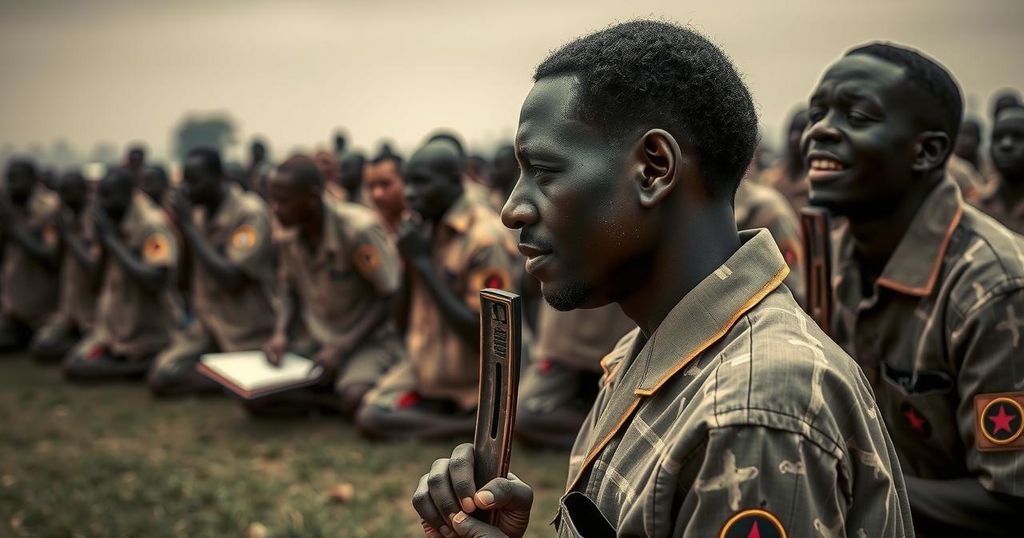On January 7, 2025, the United States designated the Rapid Support Forces in Sudan responsible for genocide in Darfur, sanctioning their commander and associated companies. Human Rights Watch has documented numerous atrocities committed by the RSF, including ethnic killings and mass displacements, calling for urgent accountability. The U.S. is urged to work with international bodies to establish justice in the region and expand sanctions against entities exacerbating the conflict.
On January 7, 2025, the United States government publicly declared that the Rapid Support Forces (RSF) have committed acts of genocide in Darfur amid the ongoing conflict in Sudan. This announcement coincided with the imposition of sanctions on RSF leader, Mohammed Hamdan Dagalo, and seven affiliated companies due to heinous acts perpetrated during the conflict. Such measures reflect an essential step towards accountability in the face of widespread atrocities identified by Human Rights Watch (HRW), including ethnic killings, systematic sexual violence, and mass displacements inflicted by RSF forces against civilians in West Darfur.
Human Rights Watch has emphasized the need for further investigation into the allegations of genocidal intent exhibited by the RSF. The US government’s recognition of these atrocities and accompanied sanctions represent a significant advancement in efforts to seek justice for the Sudanese populace. It is critical that the United States collaborates with the United Nations Fact-Finding Mission on Sudan and the International Criminal Court, sharing pertinent evidence to pursue accountability for these grave human rights violations.
Moreover, the United States should broaden its sanctions against other individuals or entities undermining humanitarian efforts in the region, including threats to the arms embargo in Darfur. There is also a pressing need for the U.S. to press allies, particularly the United Arab Emirates, to halt any arms transfers to Sudan that facilitate ongoing violence and suffering.
In response to these developments, Nicole Widdersheim, Deputy Washington Director at Human Rights Watch, articulated: “The State Department’s announcement should be the first step toward redefining U.S. policy in Sudan with accountability and civilian protection at the center. We hope to see more pressure from the United States on the parties to the conflict and U.S. allies to respond to past and ongoing atrocities and human suffering.”
The US government’s stance against the RSF signifies a turning point in its approach to Sudan, emphasizing the need for a focus on accountability and civilian welfare as critical elements of foreign policy. The commitment to sanctioning those responsible for lethal acts is vital, yet the situation necessitates continued attention and action to uphold human rights and foster stability in Sudan.
The conflict in Sudan has been ongoing since April 2023, primarily involving the Sudanese Armed Forces (SAF) and the RSF, which has a notorious record of human rights abuses. The situation in Darfur has drawn international scrutiny, with numerous reports documenting severe violations of human rights including ethnic cleansing. The formal recognition of genocide by the United States not only highlights the severity of the situation but also places pressure on international bodies to take action against the perpetrators. The role of international actors in influencing the course of the conflict and aiding humanitarian efforts is critically important.
The recent determination by the United States regarding genocide in Sudan represents a pivotal moment in addressing the ongoing humanitarian crisis in Darfur. By sanctioning the RSF and its commander, the U.S. is taking important strides towards accountability for crime and human rights violations. Ongoing pressure on international partners and further sanctions against obstructing entities will be essential to ensure help reaches affected populations and to promote peace within the region.
Original Source: www.socialnews.xyz






